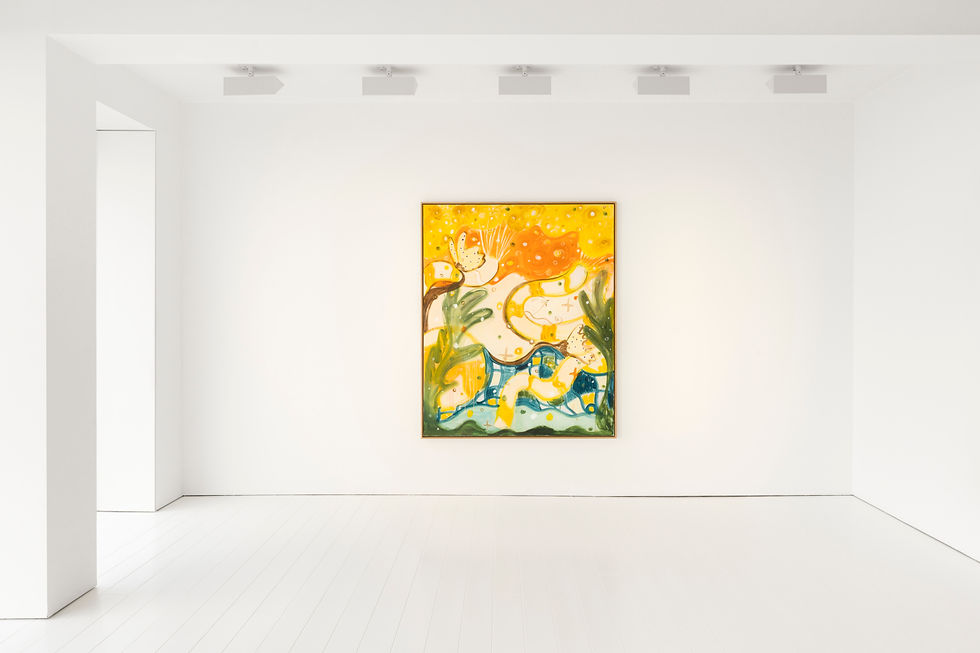GROUP SHOW AT DE BROCK GALLERY
- Cabelgium
- Aug 22, 2022
- 2 min read
"Boules de Berlin"
With works by Günther Förg / Imi Knoebel / Robert Mangold / Jason Martin
- Until 31.08.2022
De Brock is pleased to present Boules de Berlin, a group exhibition that takes its title from the traditional German jam-filled pastry, sold by vendors along the nearby Knokke beachfront. The exhibition unites four international artists, all with a shared history of monochromatic painting inspired by Modernist ideals, early experiments that eventually gave way to their individual advancement of geometric or gestural abstraction.
Imi Knoebel and the late Günther Förg, both important pioneers of post-war German art, look to and learn from modern art history in order to create their contemporary visual vocabulary. The former found fame in the late 1960s for his inventive installations of geometric monochromatic panels and paintings on plywood or metal plates. He has been employing shaped aluminium blackboards, such as those on display in Boules de Berlin, since the 1990s, which coincided with his adoption of a broader colour palette and looser brushstrokes. Recent works see the application of thick, almost impasto acrylic, partly inspired by the artist’s observation of his granddaughter's childhood colouring books.
Förg similarly established himself in the 1970s with black monochromes and experimentations with translucent grey layering. After an acclaimed stint in photography in the 1980s, he returned to painting with renewed vigour, often working sequentially on bodies of work such as his Window and Spot paintings. The four paintings exhibited here span the later stages of the artist’s career, including two from Förg’s Grid or Gitterbilder series, initiated in the early 1990s, that found a formalist framework within which to introduce gestural compositions and vivid colours. Recalling his renowned lead paintings from the late 1980s, two acrylic colour-field abstractions, on wood and aluminium respectively, demonstrated the artist’s uncompromising investigation of material and medium.
Robert Mangold’s signature overlapping shapes are defined by a combination of the canvas confines and lines both hand-drawn or implicit in their absence. A mainstay of American minimalism, he embraced the brushed application of acrylic paint in the mid-1970s, having previously employed airbrushed and sprayed oils. Architectural and yet unafraid of asymmetry, his formalist fragments are always imagined in relation to their implied whole. Four triangles within a square (cream) and the two-panel Imperfect Triangle Within Two Rectangles (light-blue) emerged from a period when Mangold was moving away from his early industrial-inspired palette and instead introducing more muted, emotive hues.
Finally, Jason Martin’s three-dimensional sculptural surfaces are the result of a pigment-rich painting process the artist has been pursuing and perfecting since the early 1990s. Applying either oils or acrylic gel to aluminium panels, before manipulating the medium with his signature comb-like contraption, Martin exposes the materiality of paint itself, creating compositions that call to mind a brushstroke in close-up. Interested in the overlap between abstraction and landscape painting, the paintings included in Boules de Berlin, each titled after their pertaining pigments, vary between gestural, organic forms and striped configurations suggestive of horizons, seashores or skylines.
Pictures by © GRAYSC





































Comments